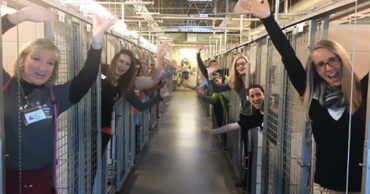Because they are often so close to us, families sometimes don’t quite understand boundaries or, even worse, good taste. Confronting family can be pretty hard, since they will often not understand why the things they say or do can be harmful.
A woman asked the internet if she was wrong for considering disowning her family after they planned a fake adoption event, which was, somehow, supposed to help her deal with her infertility. We reached out to the woman who made the post via private message and will update the article when she gets back to us.
Sometimes one’s relatives just don’t understand how boundaries or even norms work

Image credits: Getty Images / Unsplash (not the actual photo)
A woman had an unpleasant surprise when her family made a fake adoption event




Image credits: user25451090 / freepik (not the actual photo)




Image credits: EyeEm / freepik (not the actual photo)

Image credits: Dull-Elk5155
A fake “adoption” party is a terrible idea
The woman had been struggling with infertility for years, a deeply personal and painful journey that she had shared with her family. Instead of receiving the compassion and support she needed, she was subjected to a steady stream of unsolicited advice ranging from the ignorant to the offensive. Comments like “just relax” and “have you tried praying harder” demonstrate a fundamental misunderstanding of both infertility and how to support someone through trauma. These dismissive responses minimize the medical, emotional, and psychological toll of infertility, reducing a complex health issue to a problem that could be solved with the right attitude or sufficient faith.
But what her family did next transcended typical boundary violations and entered truly disturbing territory. Without her knowledge or consent, they fabricated an entire adoption scenario. They created fake adoption papers, designed and sent out invitations, ordered a cake and balloons, and even prepared a slideshow for what they called a “family celebration” to announce her supposed good news. The poster only discovered this elaborate charade when a cousin, assuming she was involved, sent her one of the invitations.
When she confronted her family about this shocking betrayal, their response revealed the depth of their delusion. Rather than apologizing for their outrageous overreach, they claimed they were “just trying to give her hope” and insisted she should be “thankful” they were trying to include her. This response is particularly revealing because it shows they genuinely believed their actions were helpful rather than harmful. They had so thoroughly centered their own feelings and desires that they couldn’t comprehend how violating and humiliating their actions were.
Some people just seem blind to boundaries

Image credits: Getty Images / Unsplash (not the actual photo)
The woman reached her breaking point and told her family she was done being shamed, pitied, or treated as their charity project. Predictably, the family responded by accusing her of being dramatic and “breaking the family apart,” employing the classic manipulation tactic of making the victim responsible for the consequences of the family’s actions. Commenters overwhelmingly supported her decision to cut contact, with many sharing their own experiences of family members who couldn’t respect boundaries around sensitive topics. The consensus was clear: what her family did wasn’t support, it was a spectacular display of narcissism disguised as love.
This case illuminates a troubling pattern in family dynamics, the inability or unwillingness to maintain appropriate boundaries, particularly around vulnerable members. But why are families so often terrible at this fundamental aspect of healthy relationships? First, there’s the issue of familiarity breeding entitlement. Many people operate under the assumption that family relationships don’t require the same courtesy, respect, or boundaries that we extend to friends or colleagues. The phrase “but we’re family” becomes a catch-all excuse for behavior that would be unacceptable in any other context. This entitlement allows family members to pry, criticize, and interfere in ways they would never dream of doing with non-relatives.
Second, families often struggle with viewing adult children as autonomous individuals rather than extensions of themselves. Parents and extended family members sometimes feel they have permanent stakes in major life decisions, from career choices to reproductive plans. When someone’s infertility becomes family knowledge, it often transforms from a personal struggle into a collective problem that everyone feels entitled to solve, regardless of whether their involvement is wanted or helpful.
The family was very insensitive
Third, there’s a performative aspect to family “support” that prioritizes appearance over actual care. The fake adoption party wasn’t really about the poster or her needs at all. It was about the family’s desire to feel helpful, to celebrate, to be seen as supportive relatives. They wanted the emotional payoff of “fixing” her problem without doing the harder work of actually listening to what she needed. Their elaborate gesture was fundamentally selfish, designed to make themselves feel good rather than to genuinely support her. Many families operate on unhealthy dynamics of enmeshment, where individual boundaries are seen as rejection or betrayal. When the poster established firm boundaries by cutting contact, the family immediately framed it as her breaking the family apart rather than acknowledging their role in creating an intolerable situation. This refusal to accept accountability is characteristic of families that prioritize unity over individual wellbeing.
The infertility aspect adds another painful layer. Society already places immense pressure on women regarding motherhood, and families often amplify this pressure through constant questions, advice, and expectations. When someone struggles with infertility, well-meaning relatives frequently make things worse by treating it as a problem to be solved rather than a grief to be witnessed. The assumption that any action, even a completely fabricated adoption announcement, would be welcome “hope” demonstrates how thoroughly they had failed to listen to or understand her actual experience.
Many readers thought the parent’s actions were bizarre

















 Follow Us
Follow Us





